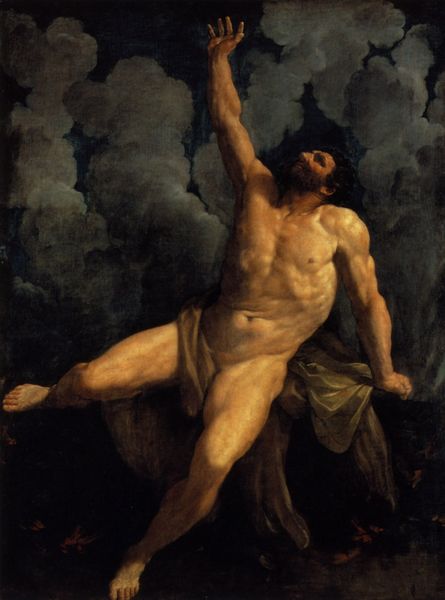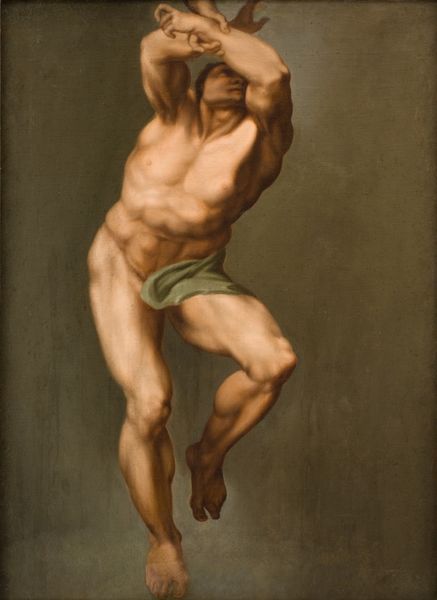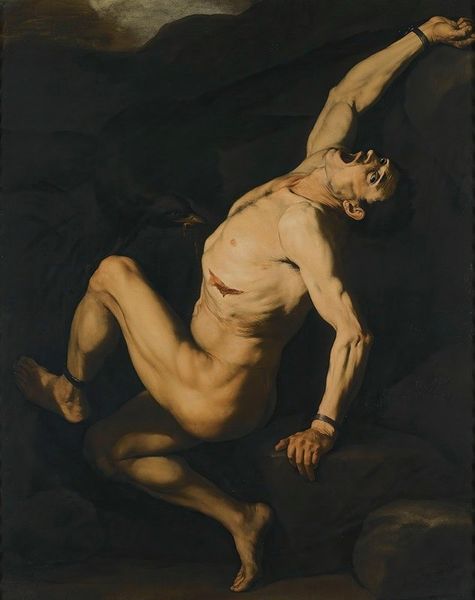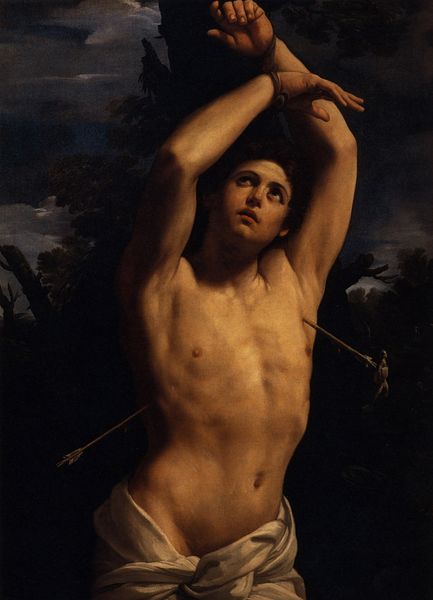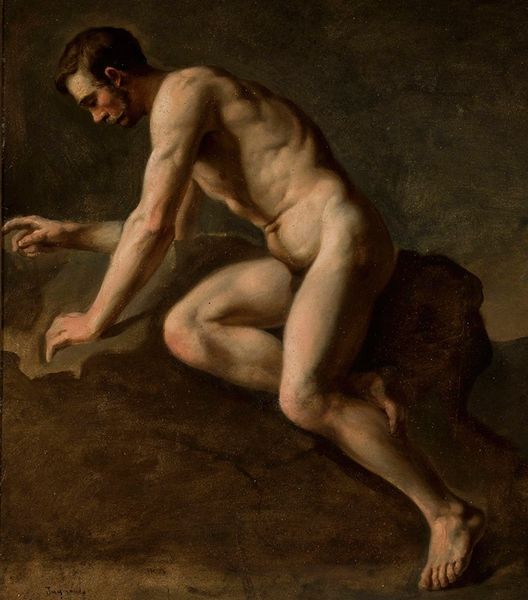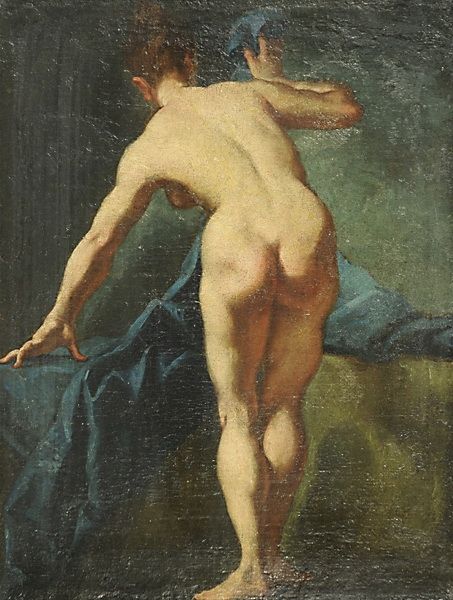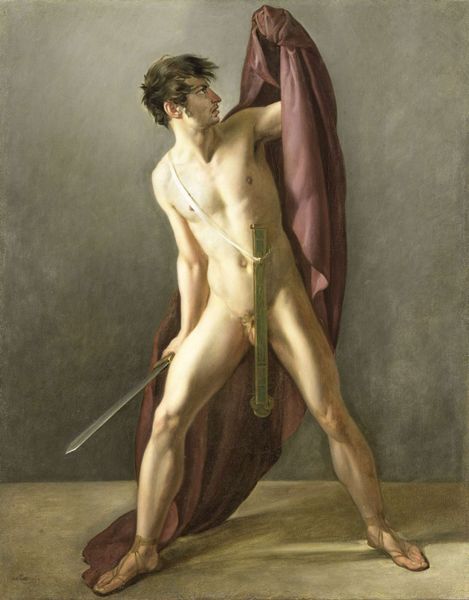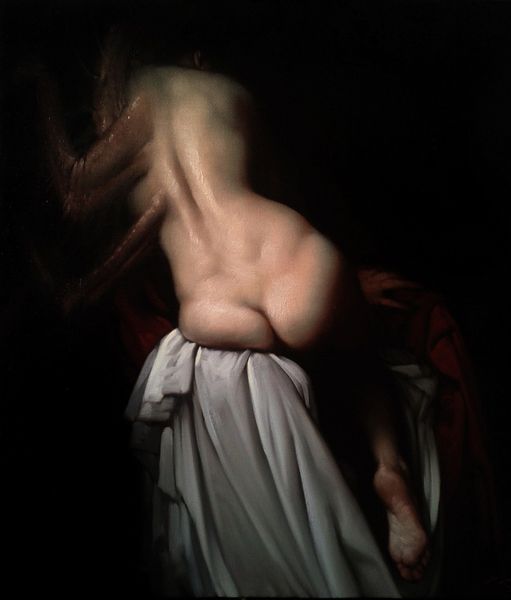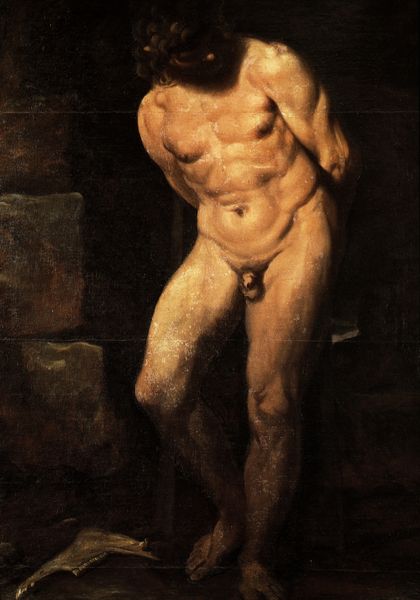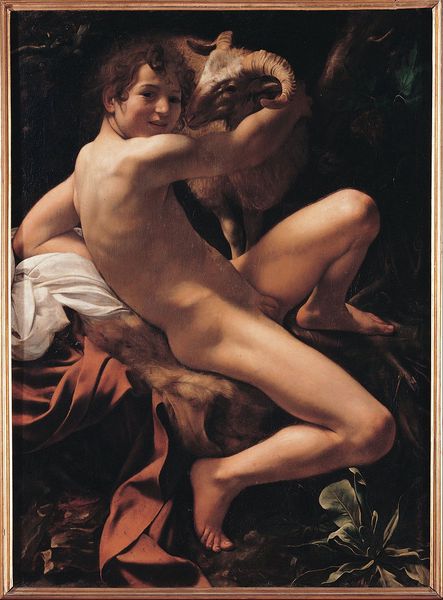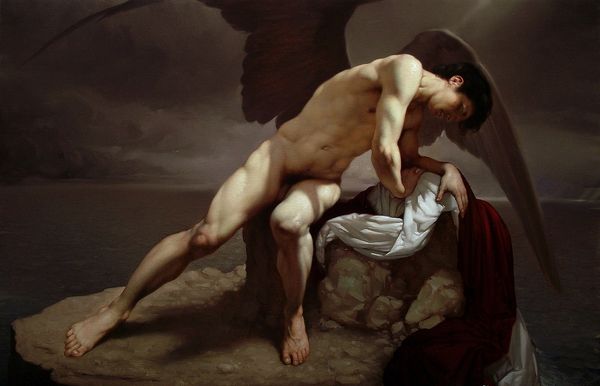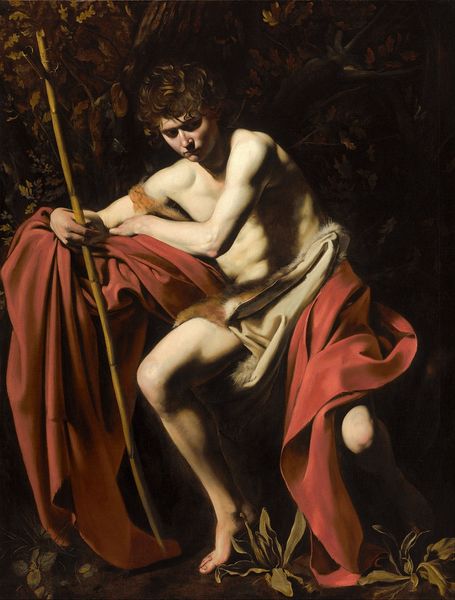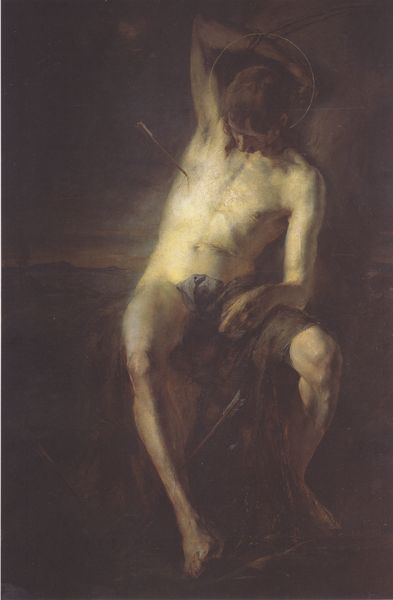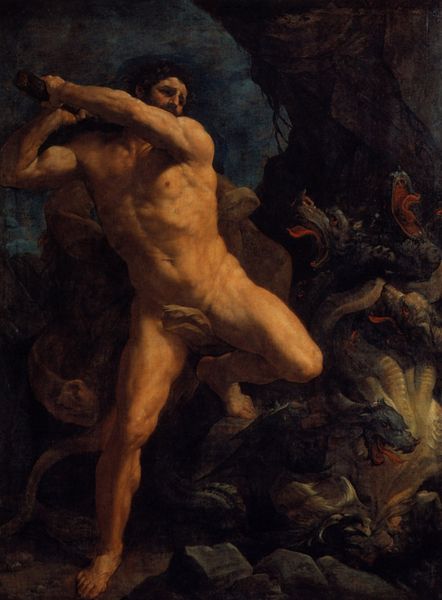
Male 'académie' Seated and Seen from Behind 1816
0:00
0:00
theodoregericault
Musée des Beaux-Arts de Rouen, Rouen, France
painting, oil-paint
#
painting
#
oil-paint
#
figuration
#
romanticism
#
human
#
history-painting
#
academic-art
#
nude
#
male-nude
Copyright: Public domain
Editor: This is Théodore Géricault’s “Male 'académie' Seated and Seen from Behind,” painted in 1816. It’s quite striking; the figure seems both vulnerable and powerful, with dramatic lighting emphasizing the musculature. What’s your take on it? Curator: I see it as a fascinating example of how the male nude can be used to express complex ideas about power, vulnerability, and even social commentary. While ostensibly an academic study, Géricault’s treatment departs from idealized representations, engaging in what Laura Mulvey called "visual pleasure" that deserves interrogation. Notice the tension in the pose; it's not simply a neutral study, but an expression of longing. Editor: Longing? How so? Curator: Think about the context: post-Revolutionary France. There was a re-evaluation of masculinity and its role in society. This figure, presented from behind, becomes almost anonymous, universal. We're invited to consider his inner life, perhaps his hopes or disillusionments in that historical moment. What’s visible here in the hyper-realistic anatomy becomes almost like a map reflecting both power and constraint. Editor: So it’s not just about technique; it’s a reflection of the changing social landscape? Curator: Absolutely. The ‘académie’ traditionally served to idealize and perpetuate existing power structures. Géricault subverts that by presenting a vulnerable figure, compelling us to question those very structures, or who those structures typically exclude. Think about who gets memorialized. Think about heroism and at what cost. This becomes less about representing an ideal, and more about interrogating the very notion of the ideal within society. Editor: That’s really changed my perspective. I was so focused on the technique, I didn’t think about the deeper implications of representing the male body in that way. Curator: Exactly! Seeing art this way gives new meaning and helps reveal a painting’s social context, while prompting discussion on important issues of identity.
Comments
No comments
Be the first to comment and join the conversation on the ultimate creative platform.
